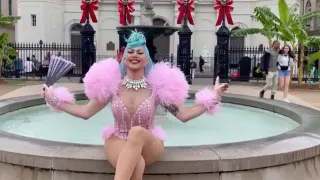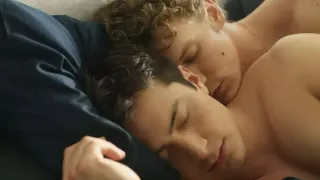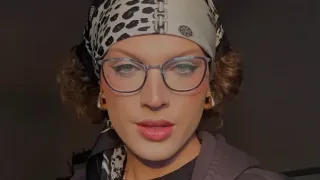May 12, 2015
Arkansas Couple Died Trying to Shield Daughter From Twister
Jason St. Amand READ TIME: 4 MIN.
Melissa and Michael Mooneyhan met as teenagers who attended different high schools. The two quickly fell in love and were married in 2004, even before they graduated.
More than a decade later, the pair died shielding their young daughter from a tornado as the twister chewed up the family's mobile home in Nashville, Arkansas.
The trailer "was just picked up and flipped over," said Howard County Coroner John Gray, who said the home looked "like it had exploded." He said it was "a miracle that little girl survived."
"That poor little girl is never going to know them," he added. "But she's young enough that she'll never remember what happened."
The Mooneyhans were among five people killed Sunday after a line of powerful tornadoes battered several small communities in Texas and Arkansas. Three people died in Texas. Scores of others were hurt, some critically.
The girl, who is about 18 months old, was taken to the hospital and later released to relatives.
Polly McCammack, who also lives in Nashville, is Melissa's third cousin. A week ago, she said, the close-knit family lost their grandmother who "practically raised" Melissa and her siblings.
"The family has been hit hard. They're strong, but it's almost like to the point you're afraid to breathe," McCammack said.
Michael Mooneyhan worked in the deli department of the local Wal-Mart. Melissa was a stay-at-home mom doting on their daughter.
"That baby was definitely their life. They considered her their greatest blessing. You couldn't find two parents who loved a child more," McCammack said. "She's going to grow up knowing family and knowing love."
Family members went to the site of the destroyed home the next day looking for mementos, toys and anything else they could salvage for the child, McCammack said.
The National Weather Service confirmed a tornado with a preliminary EF2 rating and winds estimated at 125 mph touched down in Nashville, a city of 4,500 people about 125 miles southwest of Little Rock.
During Sunday's first tornado warning, the county's tornado sirens sounded for so long that the battery was drained, Howard County Emergency Management Coordinator Sonny Raulerson said.
When a second warning was issued for about 16 miles south of Nashville, the sirens could not be activated, Raulerson said.
In neighboring Texas, a tornado pummeled the small city of Van on Sunday night, damaging or destroying 50 to 100 homes and killing two people, according to Chuck Allen, fire marshal and emergency management coordinator for Van Zandt County.
For much of the next day, eight people were unaccounted for in Van, population 2,600, about 70 miles southeast of Dallas.
Texas Department of Public Safety Trooper Jean Dark said late Monday night that everyone on the missing list had been accounted for. However, she said that just to be safe, cadaver dogs were checking the area.
Officials confirmed that the tornado was an EF3, with winds from 135 mph to 140 mph, Allen said.
Rescuers went door to door amid the widespread damage, which included trees uprooted and numerous homes and buildings flattened or ripped apart.
At least 42 people were injured, according to two East Texas hospitals. Four patients were in critical condition.
James Crawford and his wife, Thelma, rode out the storm in their mobile home in the area with some of Van's worst damage.
They were in bed and did not have time to run, she said. All she could do was roll over and give her husband a bear hug while they held on.
Thelma Crawford said she believes the home lifted off the ground a bit, then came back down.
"We're like family in that neighborhood," she said. "When one of them gets hurt, I hurt."
In some cases, the fronts of homes were sheared off, revealing living room furniture tossed in a jumble. Houses were spray painted with an X to indicate they had been searched by emergency workers.
Kimberli Shane held a muddy hand to her forehead as she watched friends and neighbors salvage furniture from the home she rented.
"All I could really hear was the house pulling apart," she said. "And my son saying, 'Oh, no, it's right over us.'"
Preliminary reports indicate 20 to 25 tornadoes formed Sunday in South Dakota, Iowa, Oklahoma and Texas, according to meteorologist Greg Carbin of the Storm Prediction Center in Norman, Oklahoma.
"This is certainly not an atypical system for spring where you've got the remnants of winter but the onset of summer," Carbin said.
The same storm system dumped 11 inches of rain in some places and caused widespread flooding. Firefighters in Corsicana, Texas, 60 miles southwest of Van, recovered the body of a driver who had ventured into the floodwaters after his vehicle stalled in a swollen creek.
The heavy rain caused a huge sinkhole to open up in Granbury, some 40 miles southwest of Fort Worth. The 40-foot-wide sinkhole swallowed the parking lot of a supermarket and damaged water and sewer lines beneath, WFAA-TV reported.






